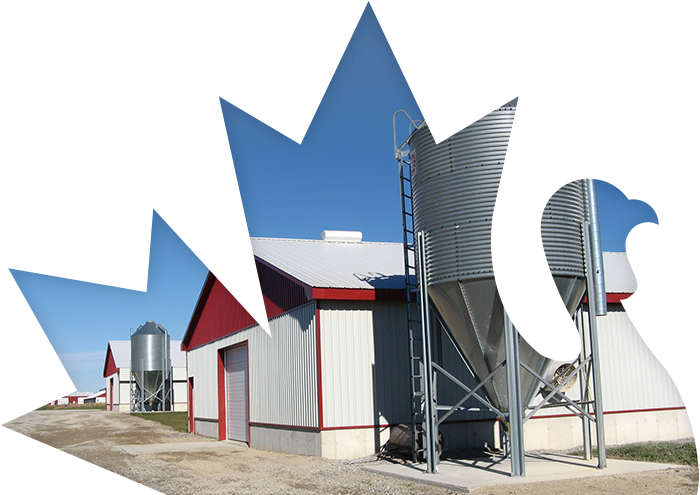Canadian turkey farmers take great care to ensure the humane treatment of their turkeys, while providing safe, high quality food to consumers.
The Canadian turkey industry uses science-based measures with respect to food safety and animal care through two mandatory on-farm programs to ensure Canadian turkey is raised to stringent standards.
The programs are reviewed on an ongoing basis, and updated as necessary, to ensure they continue to be in line with current science. Farmer compliance with the requirements of the TFC On-Farm Programs is verified through annual audits, performed by trained and qualified on-farm auditors.
In Canada, most turkeys are raised in specially designed barns that provide protection from predators, disease and bad weather (though some may be grown in semi-controlled housing or on range). Barns are monitored with regard to temperature and climate, light, space, and access to food and water, as mandated by Turkey Farmers of Canada’s Flock Care Program©. Turkeys are not kept in cages and are free to roam on floors that are covered with soft bedding.
Day-old turkeys (poults) are placed in these climate-controlled barns where they are kept warm and given special care immediately upon their arrival from the hatchery. This first stage of their life, from the time they are placed to five-six weeks of age, is called brooding.
The next stage, known as the growing cycle, runs until the birds grow to between 11 and 17 weeks of age, when they will reach their desired market weight. Hens (females) are typically grown for the whole bird market, while toms (males) are more likely to be grown for the further processed market (though some are sold as whole birds).
Every effort is made on the farm to ensure the safe care and handling of turkeys. Turkey farmers across Canada are implementing TFC’s On-Farm Food Safety Program©, which outlines extensive biosecurity measures, including restricting access of people and animals to barns, disinfecting equipment and taking proper barn management and hygiene precautions; all aimed at keeping birds healthy.
Farmers are also expected to meet or exceed the national standards outlined in the National Farm Animal Care Council’s Code of Practice for the Care and Handling of Hatching Eggs, Breeders, Chickens, and Turkeys. The promotes sound management and welfare practices through recommendations and requirements for bird health and well being.
Adherence to the Code of Practice and implementation of top-quality food safety and bird welfare programs, such as the TFC On-Farm Food Safety and Flock Care Programs©, help to ensure that Canadian turkey farmers continue to raise safe, high quality turkey for Canadian consumers, while maintaining rigorous standards for bird health and welfare.
 Skip to main content
Skip to main content
